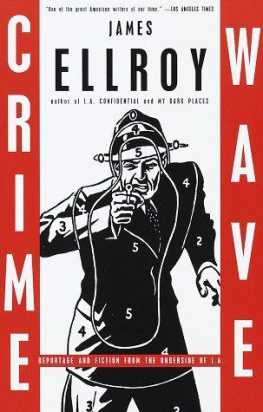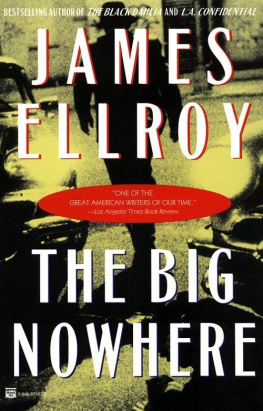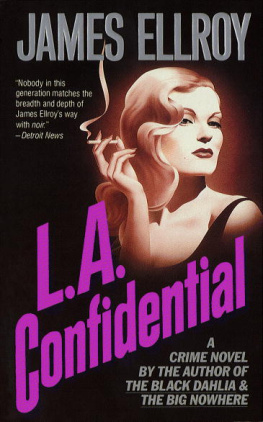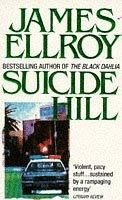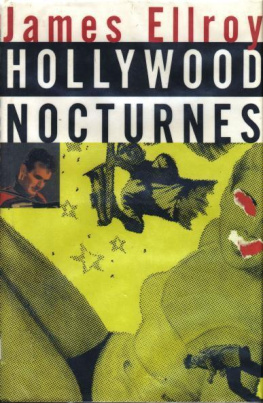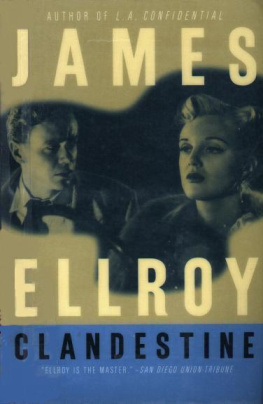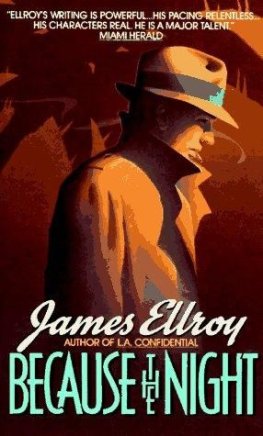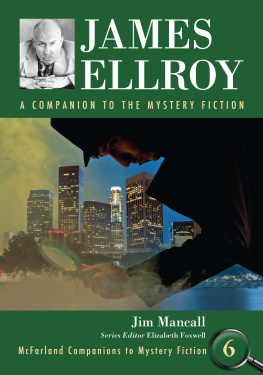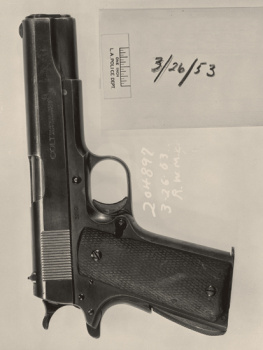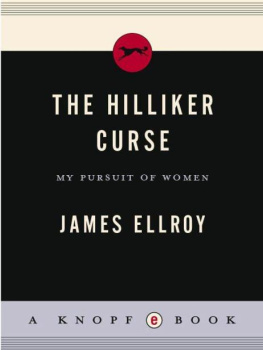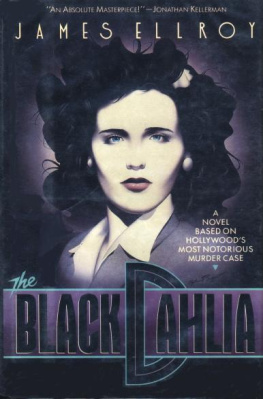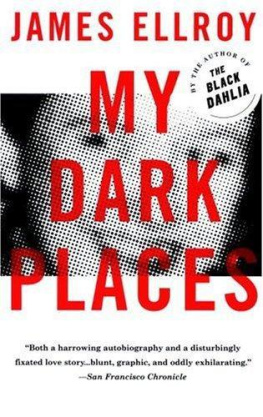James Ellroy - Crime Wave: Reportage and Fiction from the Underside of L.A.
Here you can read online James Ellroy - Crime Wave: Reportage and Fiction from the Underside of L.A. full text of the book (entire story) in english for free. Download pdf and epub, get meaning, cover and reviews about this ebook. year: 1999, publisher: Vintage, genre: Science. Description of the work, (preface) as well as reviews are available. Best literature library LitArk.com created for fans of good reading and offers a wide selection of genres:
Romance novel
Science fiction
Adventure
Detective
Science
History
Home and family
Prose
Art
Politics
Computer
Non-fiction
Religion
Business
Children
Humor
Choose a favorite category and find really read worthwhile books. Enjoy immersion in the world of imagination, feel the emotions of the characters or learn something new for yourself, make an fascinating discovery.
- Book:Crime Wave: Reportage and Fiction from the Underside of L.A.
- Author:
- Publisher:Vintage
- Genre:
- Year:1999
- Rating:4 / 5
- Favourites:Add to favourites
- Your mark:
- 80
- 1
- 2
- 3
- 4
- 5
Crime Wave: Reportage and Fiction from the Underside of L.A.: summary, description and annotation
We offer to read an annotation, description, summary or preface (depends on what the author of the book "Crime Wave: Reportage and Fiction from the Underside of L.A." wrote himself). If you haven't found the necessary information about the book — write in the comments, we will try to find it.
Crime Wave: Reportage and Fiction from the Underside of L.A. — read online for free the complete book (whole text) full work
Below is the text of the book, divided by pages. System saving the place of the last page read, allows you to conveniently read the book "Crime Wave: Reportage and Fiction from the Underside of L.A." online for free, without having to search again every time where you left off. Put a bookmark, and you can go to the page where you finished reading at any time.
Font size:
Interval:
Bookmark:
ABOUT THE AUTHOR

James Ellroy was born in Los Angeles in 1948. His L.A. Quartet novels--The Black Dahlia, The Big Nowhere, L.A. Confidential, and White Jazz--were international bestsellers. His novel American Tabloid was Time magazine's Novel of the Year for 1995; his memoir My Dark Places was a Time magazine Best Book of the Year and a New York Times Notable Book of the Year.
INTRODUCTION
by Art Cooper, Editor-in-Chief, GQ
It was love at first sight. I first met James Ellroy in the fall of 1993 at The Four Seasons restaurant, a midtown Manhattan mecca for publishing poobahs where lunch for two can easily exceed the advance for a first novel. The first word James uttered was "Woof!"--and thus did the Demon Dog of American Literature enter my life and GQ's. In the five years since, James has contributed some of the finest journalism and fiction we have published, and all of it is included in this volume. Contrary to the convention that writers make their names in magazines before turning to books, James was at the top of his game as a novelist when he decided to try magazine writing.
James is a big man with a big voice and a big personality. Those who don't know him well find him intimidating. So do those who know him well. And he is fearless as a Doberman, which I discovered early on when we were trying to decide on a perfect story. Having admired his The Black Dahlia, I acknowledged my own fascination with Hollywood murders of the '4os and '50s. The conversation went something like this:
ME: You know, some Miss Idaho goes to Hollywood to be a star, doesn't make it, works as a cocktail lounge waitress or a hooker, and winds up horribly and mysteriously murdered. JAMES: Well, I'm obsessed by an unsolved murder. My mother was murdered when I was 10. She had been drinking in some bar and left with a guy. They found her body on an access road by a high school. She had been strangled. They never found who did it. ME (excitedly): That's it! Write your obsession. Reinvestigate it. Write it. Right away. JAMES: Yes, Godfather. (He calls me Godfather all the time. I like it. It makes me feel well-tailored.)
I didn't find out until a couple of years later that James went immediately from my office to visit with his agent, Nat Sobel, a wise, compassionate man on every occasion but this one. Art wants me to write about my mother's murder, said James. Don't do it, advised Nat. It will dredge up a lot that I don't think you want to confront. I'm gonna do it, said the Doberman. The article, "My Mother's Killer," appeared in our August 1994 issue and was one of the most widely praised magazine pieces of that year. James later expanded the piece into his bestselling memoir My Dark Places.
I am not alone in thinking that everything that James has written, indeed his very essence, has been shaped by the murder of Geneva Hilliker Ellroy. He acknowledges as much when writing of her in "My Mother's Killer": "The woman refused to grant me a reprieve. Her grounds were simple: My death gave you a voice, and I need you to recognize me past your exploitation of it." James inscribed my copy of My Dark Places "She lives!"
Accompanying the article there was a photograph of James just after he has been told of his mother's death. Look at his eyes. They are shocked, uncomprehending. Raised by his father, a rakish "Hollywood bottom feeder" (James's words), who did or did not "pour the pork" to Rita Hayworth, James grew to be a teen punk, a peeping torn and a petty thief who broke into houses to sniff women's panties. He filed away, in his mind, everything he saw when he was strung out on drugs or drunk on cheap booze or spending nine months in local lockups--nightmarish, photographic visions that would fuel his noirish fiction.
These complex tales of Los Angeles's seamy underside provide the truest social history of the city in the 1940s and '50s, an era of "bad white men doing bad tings in the name of authority." Ellroy's stories are as dense as an overcrowded prison, but his syiicopated style is deceptive: short, staccato, often alliterative bursts. But they are not riffs. Each muscular sentence follows the next and orderly advances the plot. His protagonists are deeply wounded men on both sides of the law, scarred and corrupted by what they have seen.
James had achieved a reputation as the best American hardboiled crime writer when his novel L.A. Confidential was turned into a critical and commercial hit movie, which happily introduced him to a much larger audience. He writes about that experience here in "Bad Boys in Tinseltown." In this volume, too, are three short fictions that continue where L.A. Confidential ended: "Hollywood Shakedown," "Hush-Hush," and "Tijuana, Mon Amour." James reprises Danny Getchell, the cannily corrupt star writer of Hush-Hush magazine, who has the grisly goods on almost everyone in Tinseltown and will blackmail anyone to obtain exclusive dirt. Ellroy gleefully dips in the muck his band of merry miscreants, including Jack Webb, Mickey Cohen, Frank Sinatra, Lana Turner, Johnny Stompanato, Dick Contino, Sammy Davis Jr., Oscar Levant, and Rock Hudson. There is a raunchy ring of verisimilitude, a truly bizarre believability, to the way Ellroy makes them behave.
Two years ago I hosted a dinner party at The Four Seasons for another '5os icon, 7 1-year-old Tony Curtis, who arrived wearing a ruffled white shirt, a tuxedo jacket without lapels, a medal from the French government on his chest, and his stunning 2 6-yearold, 6'1" girlfriend, Jill Van Den Berg, on his arm. James was there as were Tom Junod, who had written a brilliant profile of Curtis for GQ, and an editor whose name will come to me in a moment. When I suggested that Tony be seated away from the other diners, James thought it would be better if he sat near them. James, of course, was right. All evening, middle-aged suburban matrons fawned over Tony, pleaded for his autograph, touched him, told him he was the handsomest movie star ever.
We drank some surpassingly good wine, laughed a lot, and listened raptly to Tony and James, back and forth like a shuttlecock, tell ribald tales of Hollywood in the '5os. It became clear to me that no one alive knows more than James about that particular time in that particular place. He seems to know everything about the famous, the near-famous, and the infamous. Especially their penis size. His novels, like his conversation, abound with references to it. Some of his characters are "hung like a donkey," others "like a cashew." Why he is so obsessed is best left to Freudians, but for Ellroy, more than any other writer, anatomy is truly destiny.
Ellroy's destiny was to be a moralist. But he doesn't ride his moralism like some hobbyhorse. When he is outraged by some wrongdoing, he gets really juiced. Shortly after 0. J. Simpson committed the double-slash of ex-wife Nicole and her friend, Ron Goldman, I asked James if he'd write an essay on the Crime of the Century. Yes, indeed, he replied. The result made the hair on the back of my neck stand up. "Sex, Glitz, and Greed: The Seduction of 0. J. Simpson" is a passionate, powerful piece that skewers Simpson and the horrific Hollywood celebrity culture that spawned him. Several months ago, James was in moral high dudgeon again, this time outraged at Bill Clinton's sexual dalliance with Monica Lewinsky and his rather bizarre pronouncement that a blow job really isn't sex. James was itching to rip Bubba, and I, perhaps unwisely, declined.
This white-hot morality and a singular narrative gift aside, I think James has become one of the finest writers of our time because he is the most disciplined scrivener I have ever known. He rises early and spends io hours every day writing. He has never been blocked. He seems always to be juggling a novel, short fiction, and his magazine work. Astonishingly, he has never missed a deadline. He possesses the concentration--and the confidence--of a cat burglar; the outline of his novel-in-progress runs 343 pages.
Next pageFont size:
Interval:
Bookmark:
Similar books «Crime Wave: Reportage and Fiction from the Underside of L.A.»
Look at similar books to Crime Wave: Reportage and Fiction from the Underside of L.A.. We have selected literature similar in name and meaning in the hope of providing readers with more options to find new, interesting, not yet read works.
Discussion, reviews of the book Crime Wave: Reportage and Fiction from the Underside of L.A. and just readers' own opinions. Leave your comments, write what you think about the work, its meaning or the main characters. Specify what exactly you liked and what you didn't like, and why you think so.

